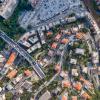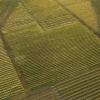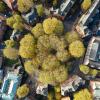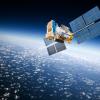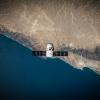
NODES will mobilize the tools of citizen and data science combined with Earth observations to monitor, analyze, and foster progress towards the UN Sustainable Development Goals (SDGs).
To realize this vision, NODES will exploit novel data ecosystems in which several actors interact via infrastructure, analytics, and applications to produce, analyze, exchange, and consume data.
Three main cross-fertilizing pillars characterize the research focus of NODES:
- Advancing the field of citizen science: NODES will remain at the forefront of citizen science from conceptual advancements to innovations in citizen science practice, including the development of new means to acquire, analyze, and openly share citizen science data, as well as how citizen science can contribute to the SDGs and sustainability.
- Enriching Earth observation: NODES will utilize new types of Earth observation technology (e.g., high-resolution imagery, drones, and the Internet of things (IoT)) and develop applications that focus on the interplay between Earth observation and citizen science using Geo-Wiki tools, various forms of remote sensing, and on-site observation.
- Exploiting the digital revolution: NODES will harness the opportunities arising from the digital revolution by exploiting advancements in computing capabilities, data science (e.g., machine and deep learning), environmental informatics, and the geospatial sciences, among others, to enhance integrated systems science research and generate new and innovative data sets for further insights.
Projects
Staff
News

14 February 2025
Strengthening citizen science and sustainability monitoring in Europe
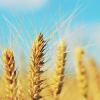
12 February 2025
The WorldCereal Reference Data Massive Open Online Course (MOOC) is available now!

16 December 2024
The collaborative power of AI and citizen science in advancing the Sustainable Development Goals
Events
Focus

17 October 2024
AI at IIASA for earth monitoring in the era of transition
As the TED AI conference unfolds in Vienna, Ian McCallum, IIASA Novel Data Ecosystems for Sustainability Research Group Leader, brings a fresh perspective on the pivotal role of artificial intelligence in Earth monitoring. He explores how AI can revolutionize our understanding of environmental changes and support sustainable practices in an era marked by significant transitions.
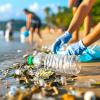
29 August 2024
Experiencing the science that we write about
IIASA researcher, Linda See, shares her experiences at the coalface of where plastic pollution is collected by volunteers during a beach cleanup event.
Publications
Moorthy, I. , Hager, G. , Harwell, T., Brozek, S., Karagiannopoulou, K., Lampkowski, M., Temmerman, L., Veeckman, C., & Woods, M. (2025). Citizen science for green urban transitions: Stories from Urban ReLeaf cities. In: Sustainable and Climate-Neutral Cities for an Inclusive and Equitable Urban Future, 28 February 2025, Rome, Italy. Nunn, J., Cooper, A., Roger, E., Goldin, J., Tauginienė, L., Hager, G. , Hsing, P.-Y., & Costa, I. (2025). Feedback on the ‘Draft Principles for Open Science Monitoring' from the members of the Citizen Science and Open Science Community of Practice. Open Science Community of Practice Ajates, R., Benyei, P., Avery, H., Butkeviciene, E., Czeglédi, A., Desclaux, D., Hager, G. , Heinisch, B., Hoebe, P.N., van Noordwijk, T.C.G.E., & Barzman, M. (2025). Navigating the participatory turn in agricultural and food research: Best practice from citizen science. Ambio 10.1007/s13280-025-02151-7. Fraisl, D. , See, L. , Fritz, S. , Haklay, M., & McCallum, I. (2025). Leveraging the collaborative power of AI and citizen science for sustainable development. In: Exploring the Role of Artificial Intelligence in Transforming Citizen Science: Privacy, Data Sharing, and Open Science, 19 February 2025. See, L. , Chen, Q., Crooks, A., Laso Bayas, J.C. , Fraisl, D. , Fritz, S. , Georgieva, I. , Hager, G. , Hofer, M. , Lesiv, M. , Malek, Z. , Milenkovic, M., Moorthy, I. , Orduña-Cabrera, F. , Pérez Guzmán, K. , Shchepashchenko, D. , Shchepashchenko, M. , Steinhauser, J. , & McCallum, I. (2025). New Directions in Mapping the Earth’s Surface with Citizen Science and Generative AI. iScience e111919. 10.1016/j.isci.2025.111919. (Submitted)



